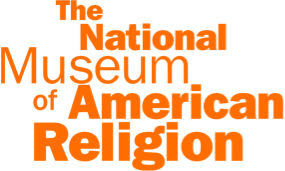Religion In American History
Despite being a comparatively young country, the history of the United States of America has been marked with many important milestones through our evolution into an economic and political world leader. A major player in the evolution of American power is the role of religion in American history. The faiths of the American people often drove this success for both good and ill, shaping how Americans of different traditions viewed one another and contributing to the nation’s influence across the globe.
The First & Second Great Awakening
Throughout the early 1730s through the mid-1750s, a religious revival swept through Great Britain and the American Colonies. DIsagreements over revivalistic methods led to numerous splits in Protestant denomination and generated new movements, setting the stage for The Second Great Awakening only a few decades later.
Like the First Great Awakening, The Second Great Awakening was characterized by emphases on repenting of sin and accepting divine grace, as well as by increasing religious populism. However, unlike the First Great Awakening, most participants in the Second Great Awakening rejected the concept of predestination that had been reinforced by the First Great Awakening. Over time, doctrinal teachings on slavery also divided different religious denominations between the Northern U.S. and Southern U.S. Northern Christians grew convinced that slavery was an affront to God, while Southern Christians felt that the Bible encouraged slavery. Nonetheless, even southern whites typically encouraged slaves to take up the Christian faith, which led to the founding of African American Methodist and Baptist churches.
The Second Great Awakening also led to the founding of different denominations within the United States. Groups such as the Seventh-Day Adventists, the Church of Jesus Christ of Latter-day Saints, and later the Jehovah’s Witnesses all were impacted by the teachings pervasive throughout the Second Great Awakening, and they’ve continued to grow as American denominations and have expanded globally
Manifest Destiny
The concept of Manifest Destiny stated that the United States of America had been set apart by God as a global leader. As such, it had a responsibility to grow its borders and share the ideals of capitalism and democracy. This led the fledgling nation to expand westward through purchases and annexations, resulting in continuous conflict with Native American tribes, European imperial powers, and Mexico. This expansion also intensified disputes where slavery would be permitted in the nation and contributed to the violent sentiments that led to the U.S. Civil War.
Michael T. Lubragge, an American History Professor from the University of Massachusetts, notes that the doctrine of Manifest Destiny was promoted by American political leaders such as James K. Polk, Theodore Roosevelt, and William Henry Harrison. It was opposed by other political leaders such as Grover Cleveland, and high-profile individuals such as Andrew Carnegie, and Mark Twain. Activists in favor of Manifest Destiny often cited biblical-style language such as America being “a promised land”, a “chosen nation”, and “a city on a hill”, and that it held the nation responsible for developing itself and taking on its divine mantle.
Patriotism, Christianity, & The Cold War
Throughout the Second World War, American Evangelicals framed the war as a conflict of “good versus evil” to overthrow the Axis Powers. However, as the war concluded, concern over their former ally, Communist U.S.S.R., began to take hold. U.S. Presidents such as Harry Truman and Dwight Eisenhower framed the conflict as America, which was religious, democratic, and capitalist, against the Soviet Union, which was atheistic, totalitarian, and communist. They pointed towards the religious and moral values that many U.S.citizens cherished and felt that they should inform f domestic and foreign policy. President Truman sought an ideological alliance with the anti-Communist Catholic Pope Pius XII and attempted to prevent a Communist electoral victory in the 1948 Italian National Election.
Hostility towards the U.S.S.R., along with other political ventures such as the Marshall Plan to rebuild the European economy, signaled to many within the United States that Communism was not morally or economically sound. This led to a moral crusade that sought to protect the American lifestyle by coming closer to God, contrasting itself against the popular view that Communism was “godless”. Pastors such as Martin Luther King Jr said that Communism was “diametrically opposed to Christianity. Since for the Communist there is no divine government, no absolute moral order, there are no fixed, immutable principles.” Others, such as Billy Graham sought to bring together the American people through a united faith in God. To this day, many Americans view religion as necessary to the preservation of American lifestyles and American freedoms.
Conclusion
Religion in America historically defined the thoughts and actions of the general population and leaders on the national stage. As we continue to study and learn about American religious history, we understand what led great American leaders to rise to prominence.
Sources
“The First & Second Great Awakening: Facts, Summary & Significance.” School History, School History, 25 Mar. 2020, schoolhistory.co.uk/notes/the-first-second-great-awakening/.
Scott, Donald M. “The Religious Origins of Manifest Destiny.” National Humanities Center, Queens College and the Graduate Center of the City University of New York, nationalhumanitiescenter.org/tserve/nineteen/nkeyinfo/mandestiny.htm.
Lubragge, Michael T. “Manifest Destiny – The Philosophy That Created A Nation.” American History From Revolution To Reconstruction and Beyond, University of Groningen, www.let.rug.nl/usa/essays/1801-1900/manifest-destiny/manifest-destiny—the-philosophy-that-created-a-nation.php.
Kirby, Dianne. “The Cold War and American Religion.” Oxford Research Encyclopedia of Religion, University of Oxford, 24 May 2017, doi.org/10.1093/acrefore/9780199340378.013.398.
King, Martin Luther. “Communism’s Challenge to Christianity”. 10 July 2017, kinginstitute.stanford.edu/king-papers/documents/communisms-challenge-christianity.
Romanowski, Michael H., and Kevin M. Talbert. “Addressing the Influence of Religion and Faith in American History.” The Clearing House, vol. 73, no. 3, 2000, pp. 134–137. JSTOR, www.jstor.org/stable/30189522. Accessed 20 Jan. 2021.
